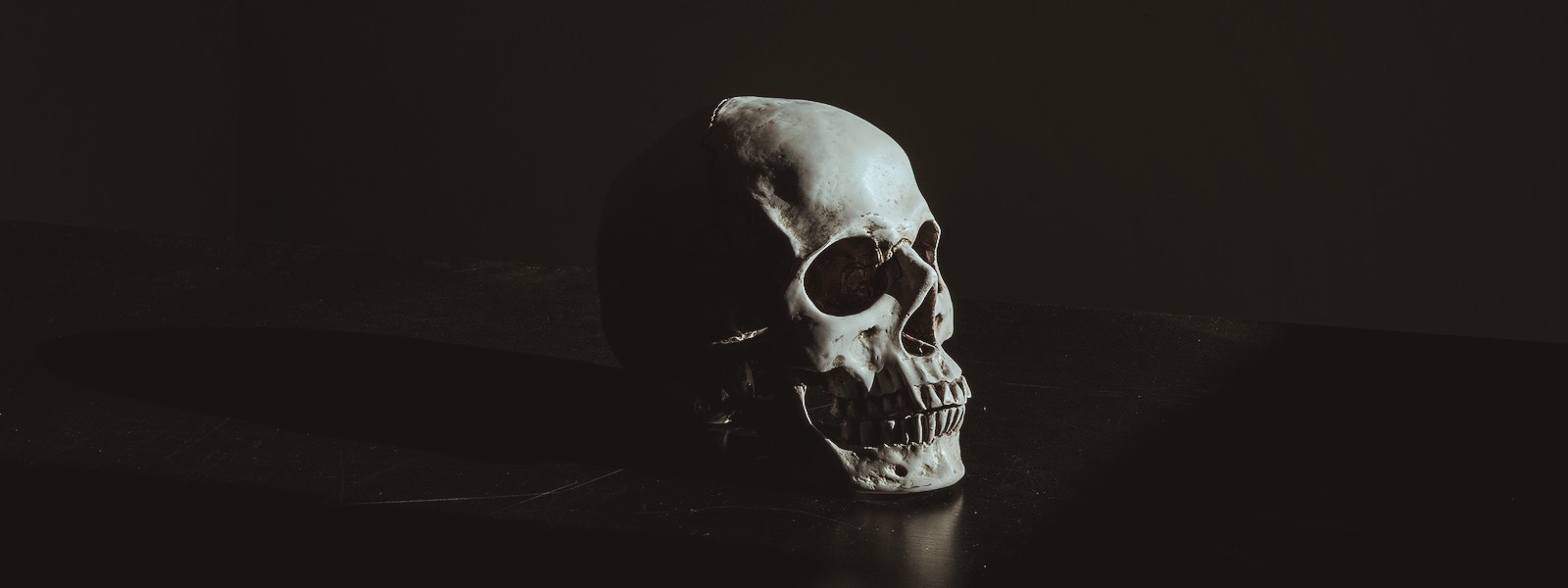In many ways, emotional struggles are the result of being prisoners to our own minds…
- We’re anxious because we’re prisoners to the habit of chronic worry.
- We have low self-esteem because we’re prisoners to long-standing patterns of self-criticism.
- We’re stuck in chronic anger and frustration because we’re addicted to rumination and unrealistic expectations.
And tragically, our natural intuitions about how to escape the prison of our minds tend to make the problems worse in the long run…
- Distracting ourselves from anxiety only makes our anxiety worse because we train our brains to be anxious about anxiety
- Avoiding other people because we’re ashamed of being depressed only strengthens our depression by further isolating ourselves.
- Venting our anger only reinforces it and intensifies it long-term.
This is part of the reason why so many approaches to mental health—from medication to traditional psychotherapies—have such disheartening track records: Because in one way or another, their basic approach is to try and get rid of emotional pain.
But the more you try to eliminate or avoid your suffering, the more at war with yourself you become. And this only makes things worse.
For over 30 years, psychologist and researcher Steven Hayes has been pioneering an approach to mental health that takes a fundamentally different perspective: Rather than trying to eliminate difficult inner experiences like painful emotions or distressing thoughts, we need to change our relationship to them.
Specifically, he’s pioneered an approach called ACT—Acceptance and Commitment Therapy—that focuses on the core concept of psychological flexibility: Instead of getting bogged down in trying to “correct” or “fix” our pain, we can learn to accept difficult experiences for what they are and move toward our values.
Recently, Steve wrote a book called The Liberated Mind that summarizes his own thoughts and the latest research on this approach to emotional health and wellbeing.
What follows is a collection of my favorite quotes from the book, along with some of my own brief thoughts.
If you’re interested in this topic, I’ll be interviewing Steve in a few weeks on my podcast, Minds & Mics, so feel free to put any questions you might have for him in the comments at the end and I’ll try to ask as many of them as I can.
On Psychological Flexibility
Psychological flexibility is the ability to feel and think with openness, to attend voluntarily to your experience of the present moment, and to move your life in directions that are important to you, building habits that allow you to live life in accordance with your values.
Reminds me of the old saying: The definition of insanity is doing the same thing over and over again and expecting better results.
On Defense Mechanisms
The things that have the power to cause us the most pain are often the things we care about most deeply. Our deepest yearning and most powerful motivations lie hidden inside our most unhealthy defense mechanisms.
A simple but powerful exercise you can try right now:
- List two or three of your most common defense mechanisms. E.g.: Responding with sarcasm whenever someone is critical of you; blaming a struggle you have on someone or something in the past; etc.
- For each, ask yourself: What’s the core desire I have behind each of these that I’m afraid to acknowledge? E.g.: Behind sarcasm might be a desire to be fully vulnerable and authentic with other people.
On Coping
If the purpose of any coping strategy is to avoid feeling a challenging emotion or thinking an upsetting thought, to wipe out a painful memory or look away from a difficult situation, the long-term outcome will almost always be poor.
Coping strategies are defense mechanisms. They’re a deal with the Devil to avoid short-term pain at the expense of long-term suffering.
I know that probably sounds dramatic, but after years of working as a therapist, I strongly believe that the most obvious common denominator among people with long-term emotional suffering is that the strategies they use to feel better are actually the very things maintaining their suffering.
Related: The Problem with Coping Skills →
On Peace of Mind
If you want to find peace of mind and purpose, you will have to let go of finding a way out and instead pivot toward finding a way in.
I think most of us aspire to be tolerant of and accepting of other people.
What if we extended that same aspiration to ourselves—to our emotions, our thoughts, our memories, our beliefs, our desires…?
On Pain and Purpose
Pain and purpose are two sides of the same thing. A person struggling with depression is very likely a person yearning to feel fully. A socially anxious person is very likely a person yearning to connect with others. You hurt where you care, and you care where you hurt.
Pain is a messenger. And no matter how much you dislike the messenger (or the message) shooting them is ill-advised.
On Healing
Changing our relationship to our thoughts and emotions, rather than trying to change their content, is the key to healing and realizing our true potential.
Think about difficult emotion like a good friend going through a hard time: they may not be a lot of fun to hang out with right now, but that’s no reason to abandon them.
Quite the opposite: We discover who our true friends are during times of pain and suffering.
On Brain and Behavior
It is correct to say that your brain determines your behavior. But it is equally correct to say that your behavior changes your brain. To say one without the other is like saying “I can only pick up fifty pounds because my muscles are weak,” without noting that your muscles are weak because you never exercise.
It can be comforting to acknowledge that what happens to us—including how we think, feel, and behave—is not 100% under our control. But that should never be an excuse to avoid taking responsibility for the many things we can control.
On Self-Talk
The problem is not the presence of a self-story; we all need one. But when we disappear into this ongoing storytelling—when we fuse with the story—all sorts of mental health and life satisfaction challenges follow.
You are not your thoughts.
On Mental Deletion
There is no delete button in the human nervous system. There is nothing in all of psychology called unlearning.
Like I used to say to my clients with PTSD: You can learn new ways of thinking about and responding to painful memories. But you’ll never get rid of them. And trying to will only make them stronger and more frequent.
On Stories
We create stories about ourselves and our lives that block out the discomfort and ambiguity of the true complexity of situations.
On Thoughts
While thoughts have a life of their own, their impact on our behavior comes from our relationship to them, from whether we act on them, and that choice is up to us.
You can be aware of a thought without thinking about it.
On Instant Gratification
So often, when life is not going well, it’s because we are doing things that give us smaller, sooner benefits at the expense of larger, later ones. The instant gratification of avoidance tricks us into trading away our future.
Psychological opportunity cost: the more time you spend running away from what you don’t want, the less time you have to spend running toward what you do want.
Related: Emotional Opportunity Cost →
On Living in the Past
Many of us live our entire lives struggling to get out of a puzzle room in our minds. We focus entirely too much on the past and how it can help us in the future rather than on enjoying the experience of the moment in its own right.
When it comes to emotional health, the past is overrated.
Freud kicked off our modern approach to mental health by rightly calling attention to the importance of the past for our present and future wellbeing.
But just because the past is important doesn’t mean we should spend all our time wallowing in it.
What we do in the present is far more important than what we analyze in the past.
On Commitment
Commitment is not about never lapsing; it is about taking responsibility even when we do lapse for the larger pattern of living we are creating.
In any worthwhile endeavor, lapsing is normal. In fact, it’s often a sign that you’ve set your sights on a worthy enough goal.
Michael Jordan missed 16,402 game-time shots during his career. But his response wasn’t to start playing basketball on a 5-foot hoop.
On Emotional Literacy
If you do not know how to name your emotions, you can’t talk about them, and from there it’s a short step to convincing yourself that they don’t exist… If you are not willing to feel pain, you cannot risk much joy.
If you haven’t already seen it, watch Inside Out.
On Mindfulness
Mindfulness is in no way an escape from the pressures and worries, hopes and fears of our lives. Traditional mindfulness methods are used to empower “right action”—being present in a way that helps us live in accordance with our chosen values.
Mindfulness is an exercise, not a relaxation technique.
On Motivation, Goals, and Values
Goals are in the future until they are achieved, and then they’re quickly in the past. Values are always in the now. And that is crucial to their motivating power.
The easiest way to get better at following through on your goals is to pair them with your values.
Of course, first you have to know what your values are…
On Parenting
Parents’ inflexibility significantly predicts their children’s anxiety, their acting out, and whether they will develop actual trauma if bad things happen. For example, if there is a nearby school shooting or a destructive storm rolls through town, you can predict which kids will have an especially hard time. It’s not those who were especially anxious; it’s those with especially anxious parents.
This is a huge challenge for me.
I’m trying to be better about “saying yes” with my kids as often as possible, in part, because it’s one of the best ways for me to model flexibility.
As parents, we can’t be so concerned with our kid’s safety that we stymie their potential for growth.
On Achievement
The competency conundrum: our problem-solving mind wants to get us to that future now, and that fixation on future success and external achievement undercuts the will to stick with the process that builds competence.
A good routine is worth 1,000 SMART goals.
On Passion and Purpose
Just as the joy of becoming involved in a great story in a film or book comes from the vicarious experience of facing challenges, so too the richness of meaning and purpose in life comes from persevering through difficulties… Passion without perseverance is a tragedy; persistence without purpose is a mockery.
The ability to reframe painful emotional experiences from threats to challenges is profoundly empowering.
Pain is a call to action, not escape.
What should I ask the author?
I’ll be interviewing Steve Hayes, in a couple weeks for my podcast, Minds & Mics. If you have a question you’d like me to ask him, put it in the comments below and I’ll choose a few to bring up in our chat.





10 Comments
Add YoursOooh, I’m excited that you get to interview Stephen Hayes, I have really liked his work.
Same! Got some major fanboy vibes going on 🙂
I’m so interested in Stephen’s thought that “a person struggling with depression is very likely a person yearning to feel fully”. Is the depression somehow made to keep the person from this purpose? Is it protective somehow? Does that mean the depression is manufactured? Please explain a bit more. Thanks!
Good questions Kathleen—thank you!
Great read Nick!
Had a question for the podcast. Aren’t we at risk of “spoiling” the kids, if every request of theirs is met with a yes?! Certainly when they do hear “no” they’ll be angry…
Solid one, John!
I’d love to ask about the fine line between 1) finding the richness of meaning and purpose that comes from going inward (being present, reflection, knowing our values, finding peace – as motivation to accomplish our goals) and; 2) where going inward prevents us from taking action, and instead becomes a coping strategy or distraction and begins to create long term suffering? Thanks!
Nice question, Nicole—than you!
I was just reading this article to my cousin who has extreme chemical sensitivity. She’s had it for 30 years and her life is pretty hellish. She can’t have a new phone, new clothes, buy a blanket, a laptop, because everything has to off-gas for a year before she can use it, and she lives in section eight housing. Her life is trying to survive. If people wear hand sanitizer when they deliver food, she can’t eat it. You get the picture. Her question: “How do I talk to myself when I have no control in the external world? How do I empower myself when the world shows me that I have no power?” This might be a tough one. But, thank you, Nick! I love your newsletter and read it to my cousin over the phone. She really appreciates it!
Players are presented with a grid or a set of words and tasked with finding connections between them, either by linking them directly or by identifying a common thread.